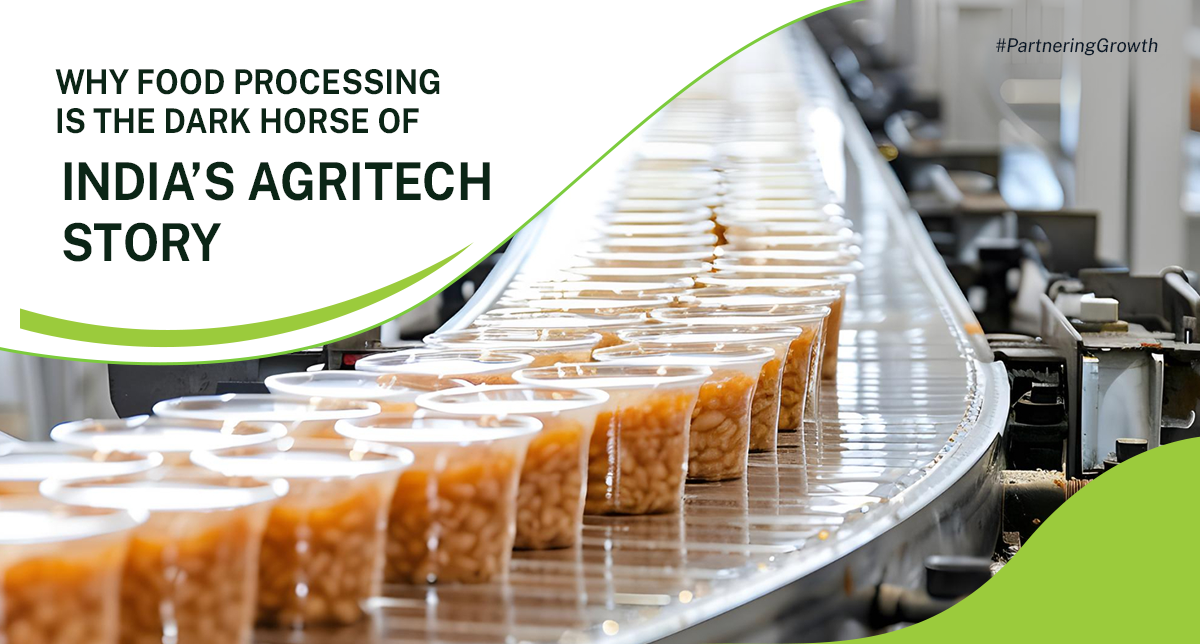


India's agritech scene is usually in the limelight for precision farming, agri-fintech, and supply chain digitisation. But silently and persistently, one space is gaining traction as a key value driver: food processing. Underreported in the wider agritech discourse, food processing has the potential to revolutionise India's farm economy by filling the gap between surplus and sustainability, production and profitability. Even though India is one of the largest producers of cereals, pulses, fruits, and vegetables globally, it processes merely a tiny fraction of its entire production. This underutilization has been the cause of post-harvest wastage, price fluctuations, and lower farmer returns in the past. Food processing has recently, however, started to change- transitioning from cottage-scale enterprises to organised, technology-based companies. The untapped potential In India, the segment is slowly attracting institutional and investor interest. The government's Production-Linked Incentive (PLI) plan for food processing and Mega Food Parks are the driving forces. These not only push innovation and infrastructure but also make collaborations between agribusiness, startups, and farmers more attractive. Technology is tipping the scales Additionally, processed food is more global in market presence- allowing India to diversify agricultural exports and lower reliance on raw commodity trade, which is frequently exposed to price fluctuations and global trade regimes. Way Ahead As the dark horse of the agritech narrative, food processing is now worthy of strategic investment and ongoing policy attention. Its capacity to redefine rural livelihoods, minimise waste, and drive exports makes it one to watch and nurture over the next decade.
Processing of food contributes economic value at each step, from transforming raw fruits and vegetables into shelf-stable products to making more exportable perishables. It generates a critical downstream demand for agricultural production, allowing farmers to earn more stable and higher incomes. It also facilitates employment throughout rural and semi-urban regions in the form of manufacturing, transportation, packaging, and sales.
New-age food processing is not just about traditional preservation. Nowadays, it is powered by AI-driven quality checks, IoT-based cold chains, and blockchain-based traceability systems. Startups are creating on-demand processing facilities and intelligent packing technologies that improve shelf life without sacrificing nutrition or safety. All these developments follow the global trends towards clean-label, organic, and minimally processed food.
If India's food processing sector is provided with the appropriate push, it can become the fulcrum of its agritech success- unleashing growth, making its food supply chains more resilient, and boosting farmer incomes. The growth of the segment is not merely about machines and factories; it's about designing new models of capturing, holding, and passing on value along the agri-chain.